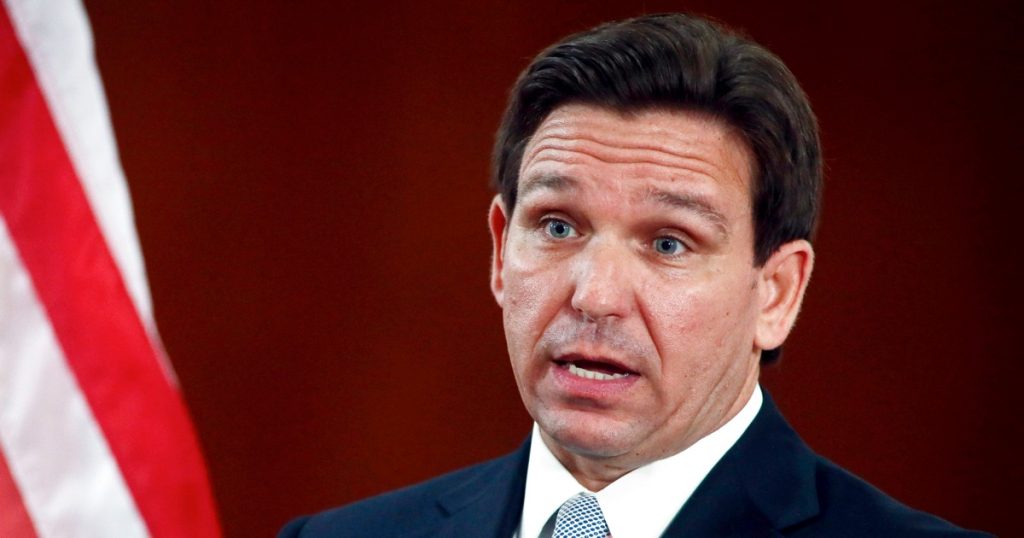Florida Governor Ron DeSantis has signed legislation that will greatly reduce the priority of addressing climate change in the state, as well as banning offshore wind turbines. This measure has sparked criticism from opponents who argue that it ignores the very real threats of climate change in Florida, such as rising sea levels, extreme heat, and severe storms. The bill, which goes into effect on July 1, also aims to increase the use of natural gas, reduce regulations on gas pipelines, and protect gas appliances like stoves.
DeSantis defended the bill as a common-sense approach to energy policy, stating that it rejects the agenda of what he called “radical green zealots.” Currently, Florida heavily relies on natural gas for electricity generation, with about 74% of its power coming from this source. Critics of the bill argue that by removing the word “climate” in multiple instances and shifting energy goals away from efficiency and reducing greenhouse gas emissions, the state is prioritizing profits for the fossil fuel industry over the well-being of its residents.
The legislation also eliminates various requirements related to environmental protections, such as mandating government agencies to hold meetings at “green lodging” certified by the state’s environmental agency and prioritizing fuel efficiency in vehicle purchases. It also removes a mandate for state agencies to consider “climate-friendly” products when making purchases. This move stands in stark contrast to previous efforts in 2008 that aimed to address climate change and promote renewable energy, as well as subsequent measures taken by former Governor Rick Scott to undo some of those initiatives.
Critics of the bill, such as the Cleo Institute, which advocates for climate change education and engagement, view the legislation as a willful denial of the reality of climate change and its impacts on Florida. They argue that the governor and state Legislature are prioritizing the interests of the fossil fuel industry over the well-being of Floridians. By taking a stance that downplays the significance of climate change, the state risks exacerbating environmental issues and harming its residents in the long run.
The decision to prioritize natural gas and reduce the emphasis on renewable energy and climate-friendly policies has the potential to set Florida back in terms of environmental sustainability. By curbing efforts to address climate change and promote clean energy, the state may face increased challenges related to extreme weather events, rising sea levels, and other environmental issues. This legislation reflects a broader trend of prioritizing economic interests over environmental concerns, a stance that has drawn criticism from environmental advocates and others concerned about the long-term health of the planet.













